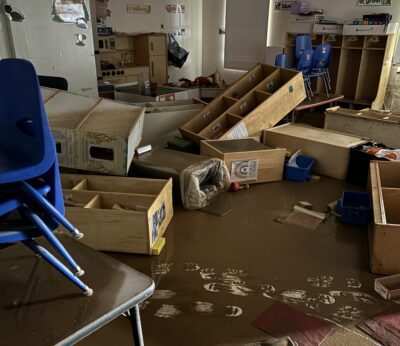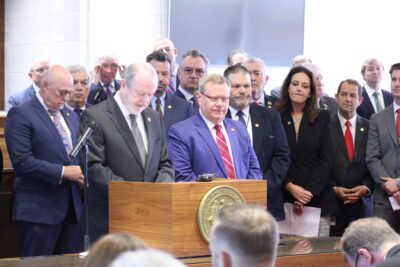
As legislators return to Raleigh this week, continued Hurricane Helene relief must include funding for our youngest learners and the child care workforce that supports them and their families.
Child care programs need funding to rebuild, repair, retain their teachers, and sustain their businesses. Entire communities are relying on them to recover.
Legislators will return Oct. 24 to pass a second round of funding after the one-day session earlier in October that resulted in the passage of The Disaster Recovery Act of 2024. Gov. Roy Cooper signed the bill into law on the morning of Oct. 10. That was the first step taken to support recovery efforts in Western North Carolina. It was necessary but insufficient.
The legislation made an initial appropriation of $273 million, including:
- $250 million in matching state funds for state agencies and local government to unlock certain federal disaster assistance funding.
- $16 million for lost compensation for school nutrition employees.
- $5 million to the State Board of Elections for voter outreach and communication in affected areas.
- $2 million to the support government agencies.
These funds are essential for the region’s heroes to do their work. But what about our young children?
Where is the funding for lost compensation for child care? Where is the funding for the early childhood educators who nurture and feed our youngest children? Where is the funding to sustain child care so that essential workers can show up in this emergency?
The early childhood field was already struggling with reduced levels of outside funding since federal stabilization funds ran out in July. Though the legislature stepped in to cover a portion of those funds, the replacement money was set to run out again in December, leaving programs on the edge.
Then the storm hit.
So far, child care programs have been left out of the state relief conversation, despite asks from early childhood leaders, as reported by EdNC’s Liz Bell. That must change.
The needs for child care before the storm were huge, and now funding is needed for capital costs, facility repairs, equipment and materials, and to keep paying teachers. And across the state, funds are still needed to save child care programs from closing and parents from paying more.
President Phil Berger, R-Rockingham, promised more relief past the initial package. Legislators should not leave chid care out this time.
Early childhood leaders in local Smart Start partnerships, the state Division of Child Development and Early Education, and other organizations are stepping up for children and families. They cannot do this alone.
Our child care workers are the infrastructure to help parents rebuild their lives. Our child care programs and early childhood workforce — in Western North Carolina and across the state — need your support.




